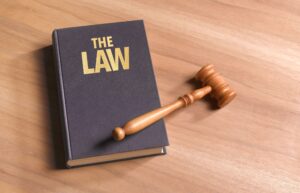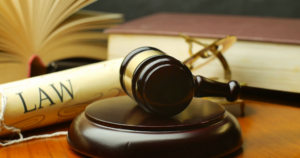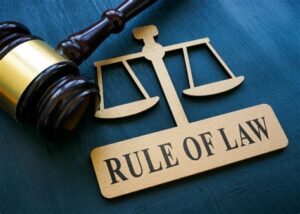Back to: Religion and National Value JSS 3
Welcome to class!
In today’s class, we’re going to be talking about the role of laws and policies in shaping democracy. I trust you will enjoy the class!
The Role of Laws and Policies in Shaping Democracy
In a democracy, laws and policies are like the rules of a game. They set the boundaries for how the government operates and how citizens participate. In Nigeria, these laws and policies are crucial in shaping how our democracy functions and ensuring that it reflects our values.
Key Concepts:

- Constitution: The Nigerian Constitution is the supreme law of the land. It outlines the structure of government, the rights of citizens, and the limits of power. It acts as a foundation for all other laws and policies.
- Laws: Laws are specific rules passed by the legislature (National Assembly or State Houses of Assembly). They cover a wide range of issues, from criminal justice to education to environmental protection.
- Policies: Policies are guidelines or plans of action adopted by the government to address specific problems or achieve certain goals. They can be related to healthcare, economic development, or social welfare.
How Laws and Policies Shape Democracy:

- Protecting Rights: Laws and policies protect our fundamental rights, such as freedom of speech, religion, and assembly. They ensure that these rights are upheld and that everyone is treated equally under the law.
- Promoting Fairness: Laws and policies can promote fairness and equality by addressing issues like discrimination, poverty, and access to education and healthcare.
- Encouraging Participation: Laws and policies can encourage citizen participation by guaranteeing the right to vote, protecting freedom of speech, and ensuring access to information.
- Limiting Power: Laws and policies set limits on the power of government officials to prevent abuse of authority and protect the rights of citizens.
Examples in Nigeria:

- Electoral Act: This law sets the rules for conducting elections, ensuring they are free and fair.
- Universal Basic Education Act: This law aims to provide free and compulsory education for all children, promoting equality and opportunity.
- National Health Act: This law seeks to improve healthcare access and quality for all Nigerians.
Religious and National Values:
Many religions and traditional Nigerian values emphasize justice, fairness, and the well-being of the community. These values are reflected in laws and policies that protect human rights, promote equality, and ensure social justice.
Challenges:
- Inconsistent Implementation: Sometimes, laws and policies are not implemented effectively due to corruption, lack of resources, or weak institutions.
- Outdated Laws: Some laws may be outdated and not reflect current societal needs and values.
Overcoming Challenges:
- Civic Engagement: Citizens can demand accountability and advocate for effective implementation of laws and policies.
- Legal Reform: Outdated laws can be reviewed and updated to reflect modern values and challenges.
Activity:
Think about a law or policy in Nigeria that you believe is important for shaping our democracy. Discuss with your classmates why it is important and how it could be improved.
Conclusion:
Laws and policies are essential tools for building a strong and just democracy in Nigeria. By understanding their role and participating in the democratic process, you can help shape a better future for our nation.
We have come to the end of today’s class. I hope you enjoyed the class!
In the next class, we shall be discussing Mechanisms to ensure government transparency and accountability to the public
In case you require further assistance or have any questions, feel free to ask in the comment section below, and trust us to respond as soon as possible. Cheers!
